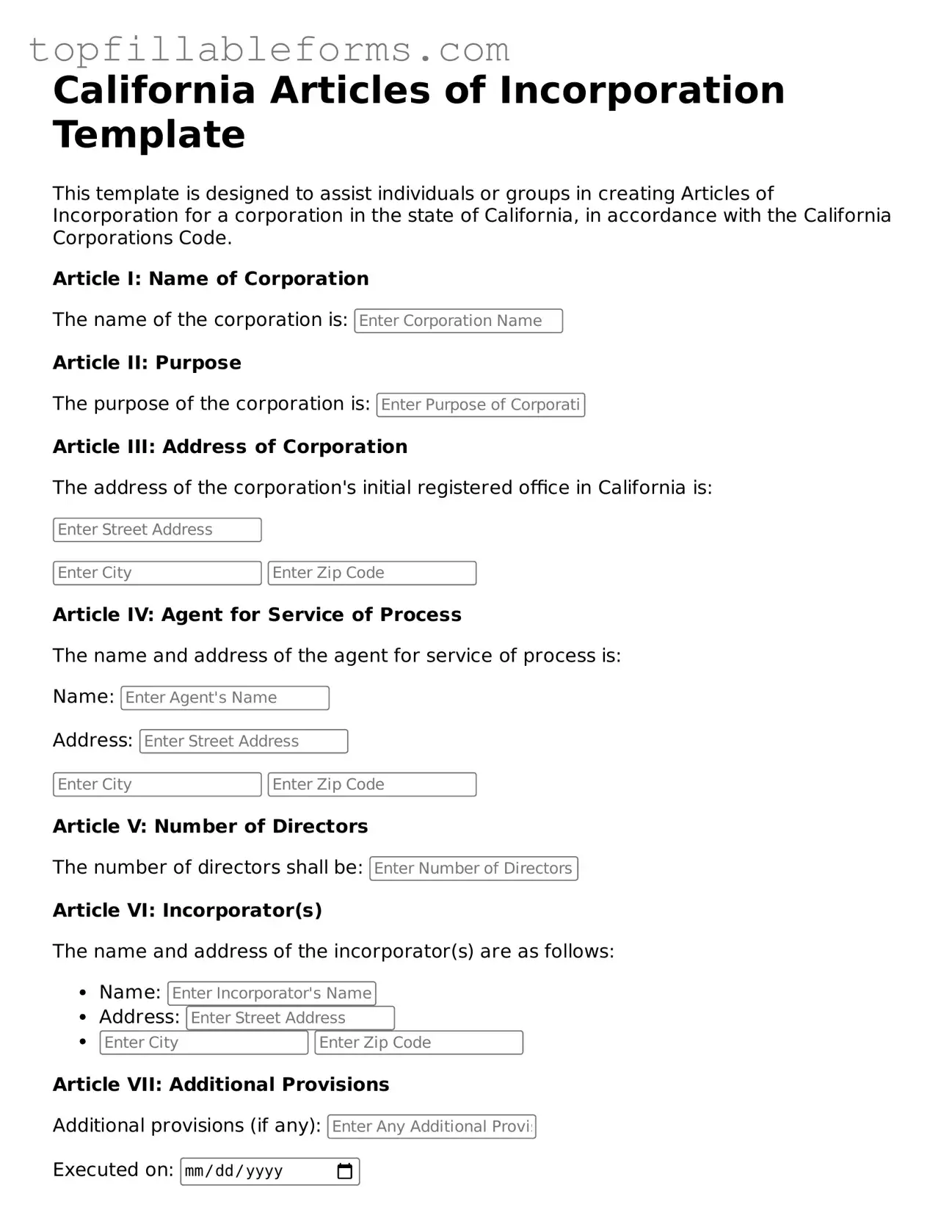Attorney-Verified Articles of Incorporation Template for California
The California Articles of Incorporation form is a legal document that establishes a corporation in the state of California. This form outlines essential information about the corporation, including its name, purpose, and structure. Completing this form is a crucial step for anyone looking to create a business entity in California.
Open Articles of Incorporation Editor Here

Attorney-Verified Articles of Incorporation Template for California
Open Articles of Incorporation Editor Here
Finish the form now and be done
Finish your Articles of Incorporation online by editing, saving, and downloading fast.
Open Articles of Incorporation Editor Here
or
▼ PDF File
